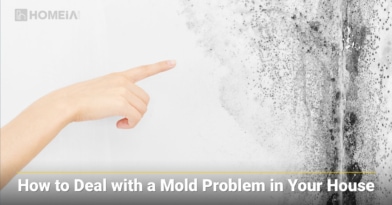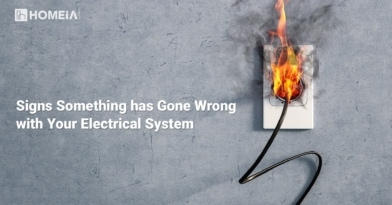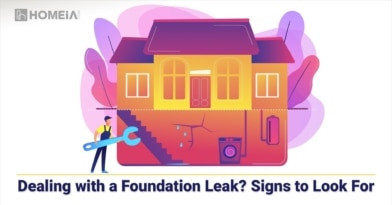Can a Landlord Tell You How Clean to Keep Your House?
- Author:by The HOMEiA Team
- Category: Home Maintenance , Home Improvement
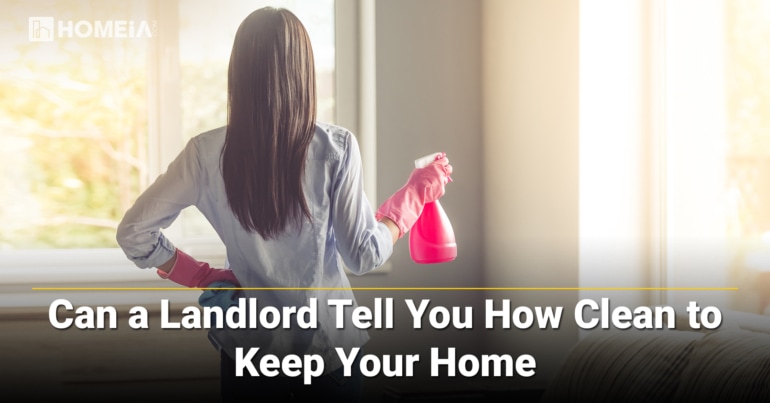
The answer to this question is Yes. Your Landlords can tell you how to clean to keep your house. The answer may also depends on the specific circumstances. In short, while landlords can’t actually force you to clean your home, in some cases they can establish consequences if you fail to do so.
The Involved Landlord
Some landlords aren’t involved enough in the properties they own. They let public spaces fall into disrepair, or they fail to enforce rules meant to keep the property safe and comfortable.
Other landlords seem a bit too involved. They are not only sticklers for the rules, but also stop by too often or want to know too much about your personal business.
Landlord/tenant relations can get thorny; after all, one party’s home is the other party’s property, and each side feels justified in asserting control over the rental unit.
Tenant law varies from one locality to another. To get a precise legal answer about what your landlord can do, you’ll need to research the laws where you live or speak with a lawyer familiar with tenant rights in your area.
Below are 7 common circumstances under which the landlord might be able to intervene or to require a certain level of housekeeping.
Table of Contents:
1. The Lease
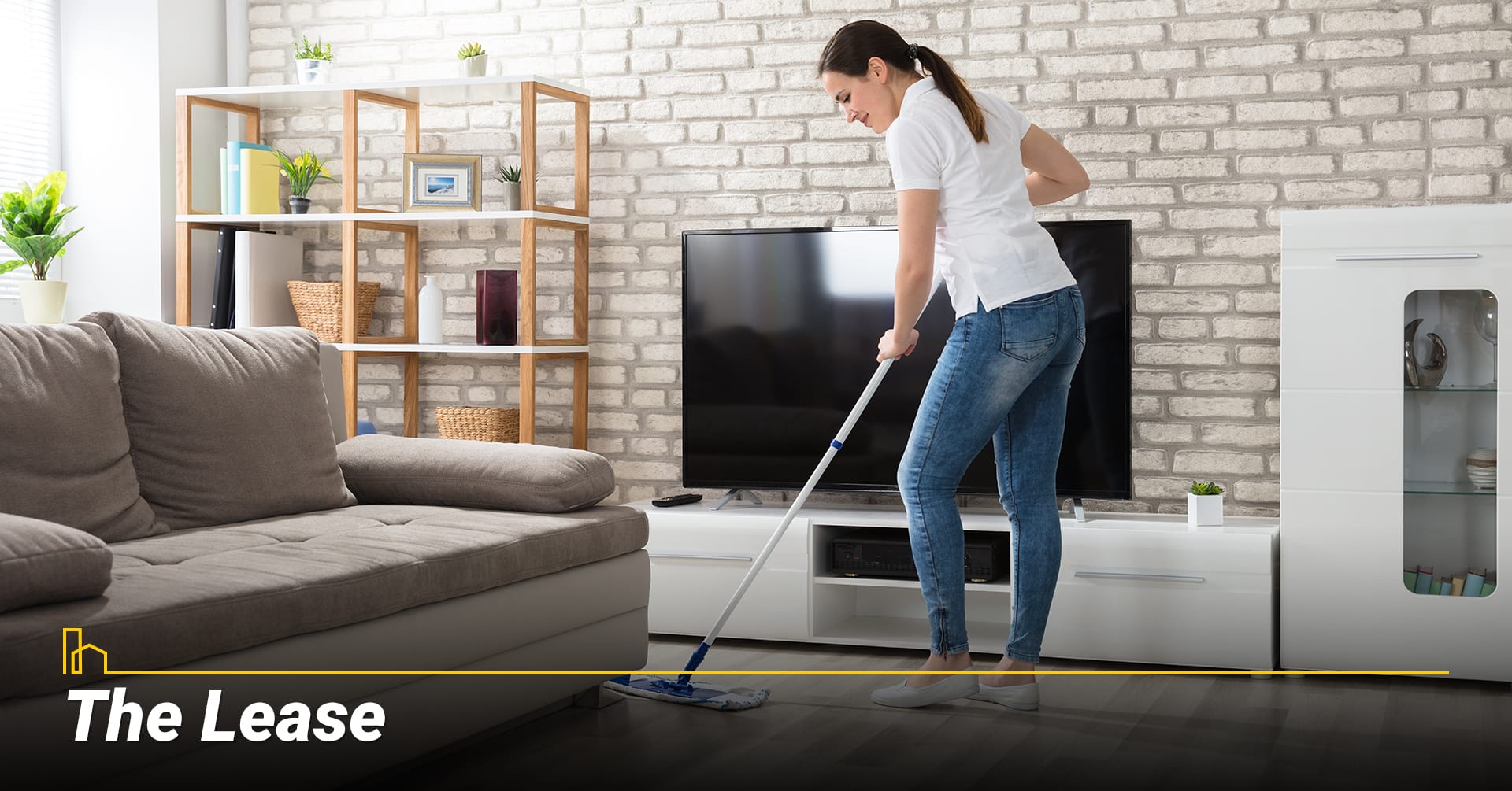
Can your landlord make you fold your laundry or straighten up your desk? Probably not. But it is possible in some states for landlords to add a housekeeping clause to the lease. Once you sign the lease, you agree to the terms as written.
A typical housekeeping clause might specify, for example, that the unit should be free of dirt and grease, that trash should be disposed of properly, or that pathways to entrances and exits should be kept clear.
Alternatively, your lease could contain a more general clause expressing only that you need to maintain a sanitary environment within the home.
Housekeeping requirements can be enforced through a regular inspection process. For example, your landlord might arrange to walk through the rental unit once or twice per year to ensure that you are complying with the lease.
What consequences can come from your failure to meet the requirements?
In the worst-case scenario, you could be evicted for violating the terms of your lease. Realistically, though, eviction is a fraught process, and it’s highly unlikely to happen as long as your mess is not hazardous or bothersome to others.
Your landlord could also refuse to renew your lease, if they consider your mess to be more trouble than finding a new tenant.
The Best 10 Ways to Maintain Your House
Your house is most likely the most expensive purchase of your lifetime — and a safe haven that provides a hub for everyday activities, relaxation and making memories. It doesn’t remain in great shape without some effort, but with some loving care and an organized maintenance schedule, you can manage the upkeep without added stress…
2. Peaceful Enjoyment

There is a phrase that is used often in tenant law to describe how tenants should be allowed to live: they are entitled to “peaceful enjoyment” of their rented property.
If your landlord insists on inspecting your home too often, or harasses you about its untidy state, you may be able to claim a violation of peaceful enjoyment. This can allow you to move out mid-lease and provide protection of you are sued by the landlord.
It’s a risky strategy, though. After all, your landlord does have a right to enter your rental unit under reasonable circumstances.
Most of the time, you’re better off negotiating with your landlord to find a middle ground both parties can accept.
How to Deal with a Mold Problem in Your House
When you have a leaking pipe within the walls, mold may also form in its vicinity. Even a leaky roof can lead to mold formation on your ceiling and the wall directly underneath the leak. Here is how to identify and remove mold from your house…
3. Health Hazards
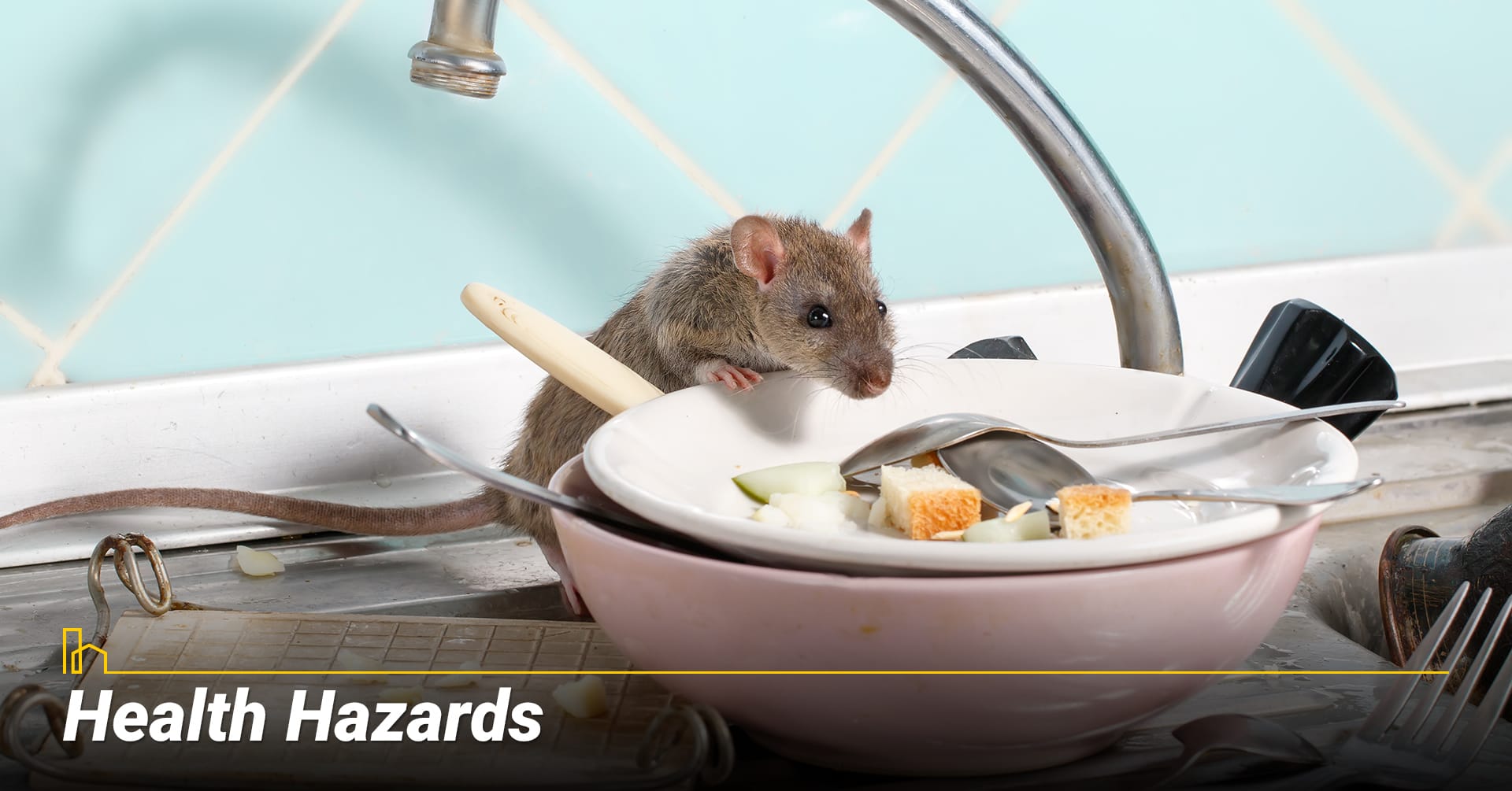
Cleanliness may be mostly a matter of preference, but there are some forms of mess that can be hazardous to people around you. Landlords have more leeway in enforcing hygiene than they do with tidiness.
Once your mess crosses into these areas, it is easier for your landlord to intervene:
- Pests.
Bugs and rodents are often attracted to food that is left out too long. And once pests are in the building, they can easily spread to other areas. Ants, roaches, and flies may move in if you leave floors unswept and rotting food in the trash can.
- Mold.
Mold forms in damp areas, and its spores can travel through the air and become a health hazard not only to you but to anyone who shares the building.
- Fire hazards.
Clutter can become a problem when it becomes a fire hazard. Piles of flammable materials (paper, clothing, even dust) can be risky, especially near a heat source, candles, smoking materials, or a poorly maintained outlet.
Recommended for you
4. Nuisances
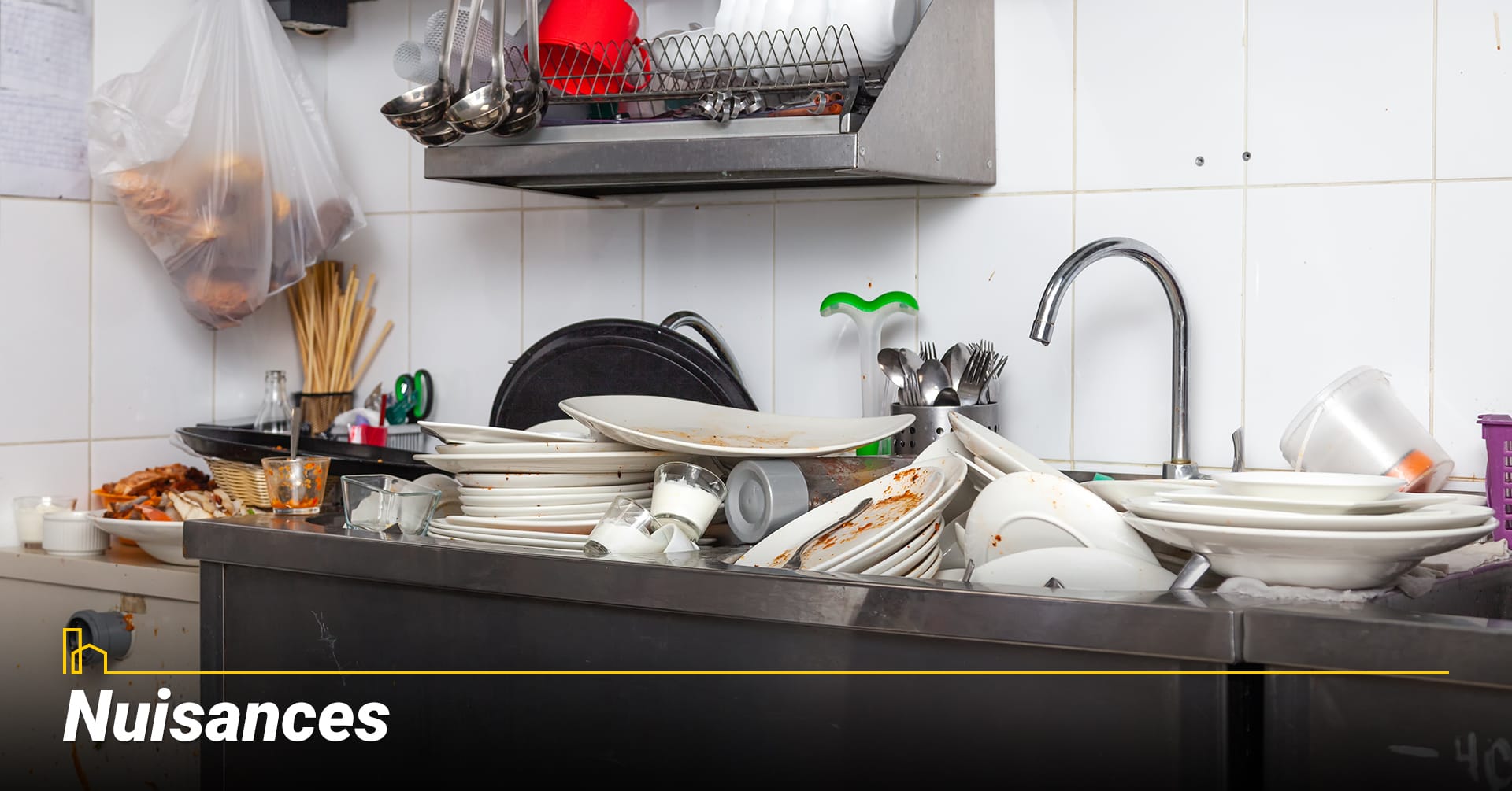
Even if your home is not hazardous, a lack of proper cleaning can make it a nuisance to your neighbors. One of the most common problems is odor.
If your landlord says there are smells coming from your apartment, it’s probably true. We become habituated to the smells around us and we may not notice them in our own space.
Odors can be caused by food, by trash that sits out too long, by smoking, by pets, or even by body odor—if, for example, you frequently work out within your home.
Another nuisance to neighbors is any belongings or trash that spill out into public areas, such as the hallway, or onto highly visible areas such as your balcony or patio. If you’re asked to clean these areas, it’s usually best to comply in order to be a good neighbor.
Best Interior Wall Colors for Selling a House
Before you put up your property for sale, your realtor might suggest that you repaint the interior walls. Your choice among the various shades of a particular color can have a tremendous impact on the first impressions the house makes on your potential homebuyers, and these impressions can make or break the sale…
5. Damage to Property
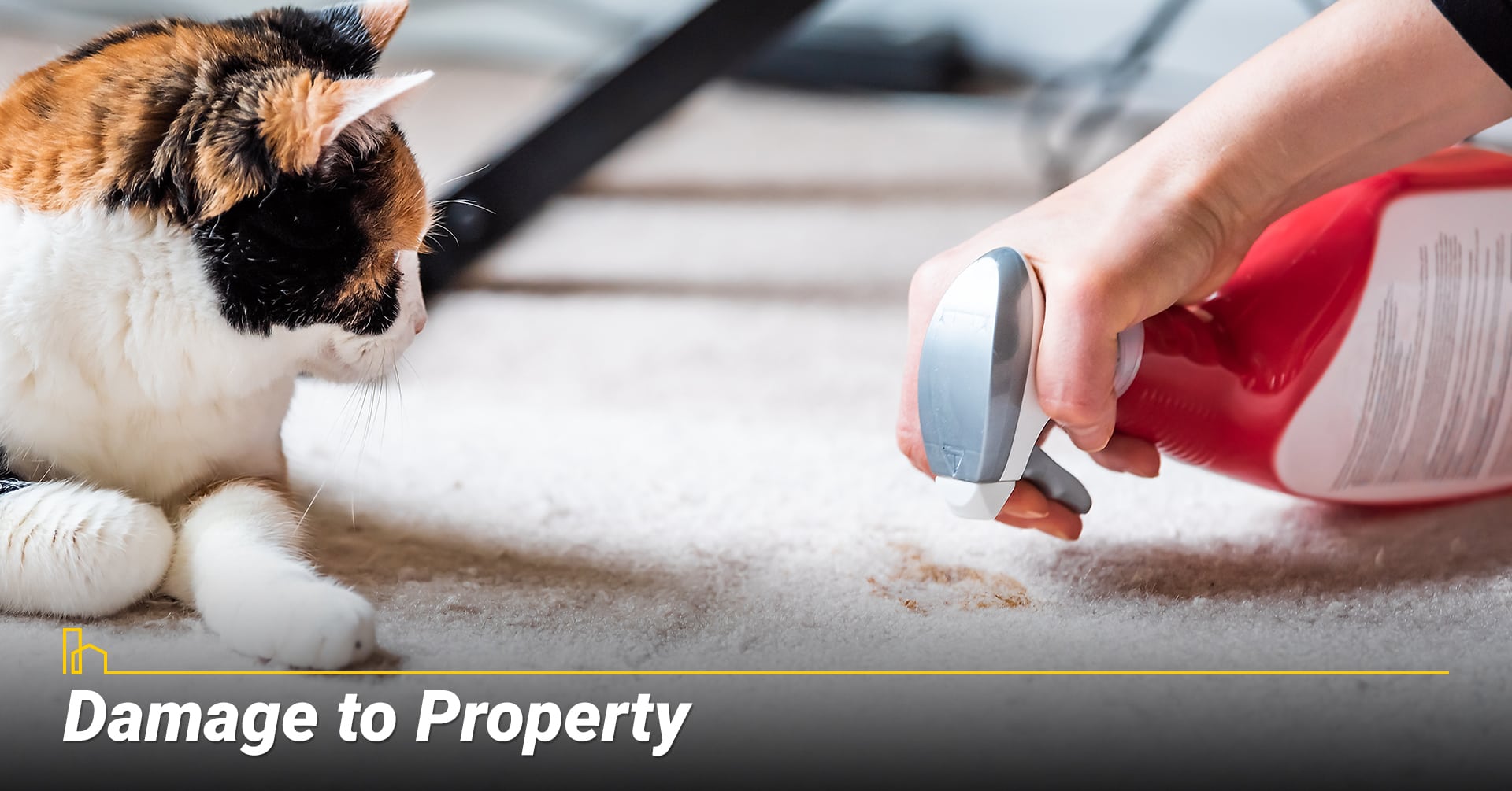
Landlords should expect normal wear and tear to occur in their rental units, and tenants should not be penalized, for example, for the fact that brand-new carpet no longer looks new two years later.
If you exceed normal wear and tear, however, and your lack of cleaning causes damage to the home, you may be liable.
What kinds of damage can arise when you don’t clean? Stains, for one; stains on the carpet and on the walls, especially when not dealt with right away, can be permanent. Mildew can also stain walls, floors, and ceilings.
Buildup can also cause trouble, damaging pipes and appliances.
Most damage occurs from accidents, and when it happens it should be dealt with promptly in order to keep your rental unit in good shape. Anything that can’t go with you when you move is part of your landlord’s property, not yours, and it’s your job to keep it up.
Signs Something Has Gone Wrong with Your Electrical System
Fortunately, it’s not hard to make sure your electrical system stays in tip-top shape. Just pay attention once in a while and notice if there are any signs of trouble. Here’re 9 big signs that your electrical system has a problem—and what to do to keep the problem from growing even…
6. Re-Renting
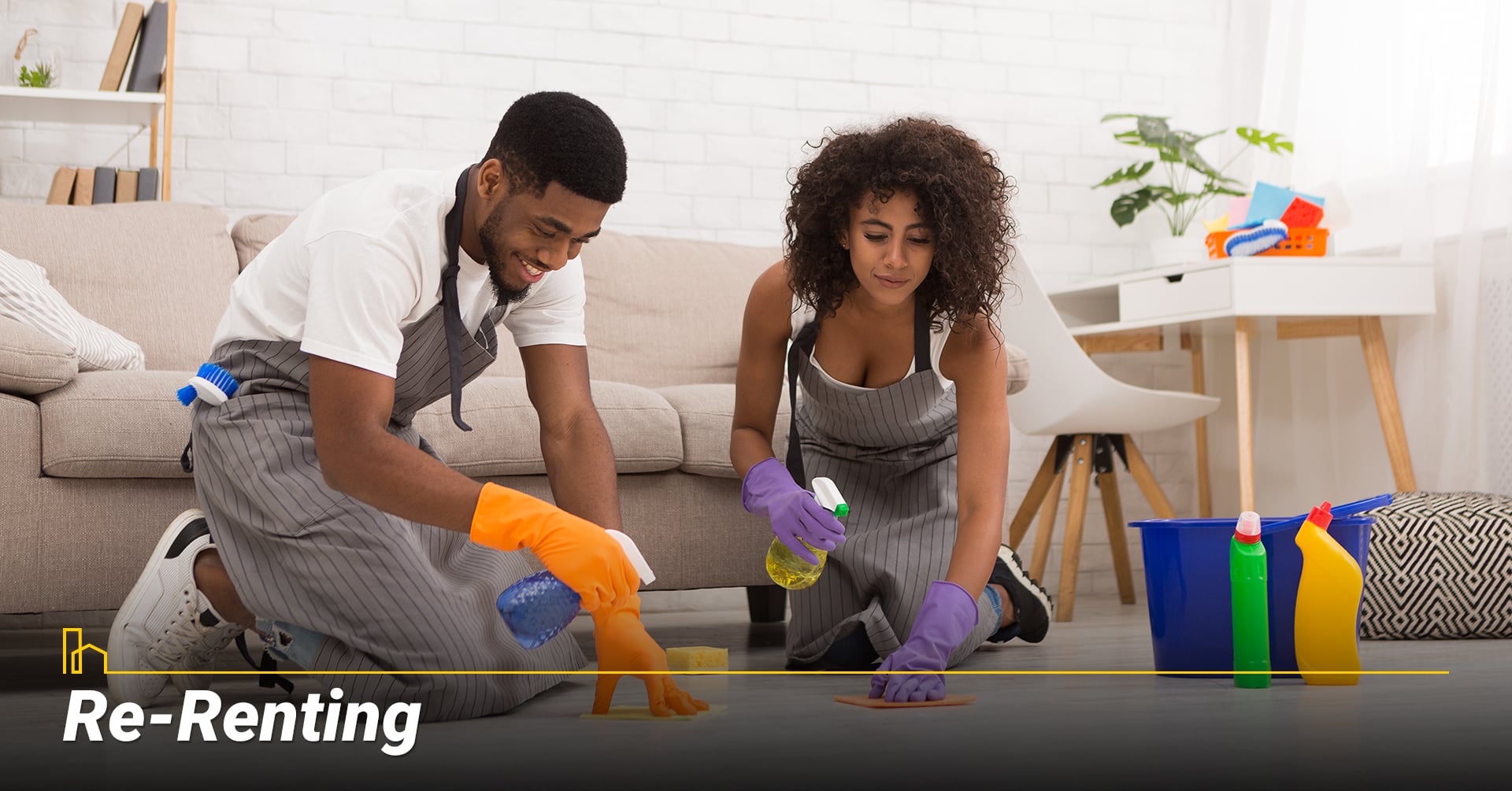
While landlords may enforce cleanliness in public areas at any time, they are likely to leave the inside of your home to you most of the time, as long as you don’t have pests or odors.
When you’ve decided to move out, though, and the landlord wants to re-rent your unit, conflict is more likely to arise. That is because the landlord’s motives—to have the place look as appealing as possible to future renters—might be at odds with yours, if you’d rather not put the time into cleaning and organizing when you’re about to move out anyway.
Can the landlord ask you to clean up before showings? Of course. If you fail to comply, though, the landlord may not be able to do much about it.
Dealing with a Foundation Leak? Signs to Look For
Foundation leaks crop up for all kinds of reasons. It’s often difficult to tell, though, just how severe the leak you have on your hands is before the worst of the symptoms arise. When in doubt, reach out to local professionals for help fixing any foundation problems that have appeared…
7. Moving Out

The easiest time for landlords to enforce cleaning is when you’re moving out. They’ve held on to the security deposit the whole time you’ve been in the unit, and now you’d like to have it back. But if the rental is not returned to the landlord in the agreed-upon condition, the landlord may attempt to withhold some or all of your deposit.
The standards to which your landlord can hold you will vary based on the terms of the lease, but a standard clause might specify that the home should be left in “broom clean” or “broom swept” condition.
This term is open for interpretation, but it generally means that all of your belongings are removed, the floors are swept, and the unit is back in the same condition as when you moved in, except for normal wear and tear.
Can your landlord legally withhold your security deposit refund in order to cover cleaning services? If the mess is above and beyond normal usage or it’s laid out in the lease, it’s possible. If you believe you’re being charged unfairly, you could sue the landlord—or you could accept the loss and move on, which might be a better use of your time and money.
Recommended for you
How to Keep Everyone Happy

A truly invasive landlord—one who doesn’t respect your “peaceful enjoyment” of your home, or who threatens to evict you if you don’t clean up your papers and laundry—can cause misery. And in those rare cases, you may have the law on your side if you want to push back against intrusive demands to clean.
In most cases, though, the landlord’s request for cleaning is just that—a request, which you can decline. If you feel the request is unreasonable, try a response like this: “I can see where my mess would bother some people, but it’s not a problem for me. I’ll make sure it doesn’t spill out into public areas.”
On the other hand, if your rental reeks of weeks-old garbage and lacks the floor space to safely walk from room to room, or if your bathroom is growing mold, consider taking the hint and cleaning up.
9 Affordable Ways to Heat Your Home This Winter
If your heating bill was frightening last year, if you’re building a residence or vacation home, or if your old system is starting to fail, it is time to look at your options when it comes to heating your home. Here we’ll explore some cost-effective ways to keep your space comfortable this winter…


